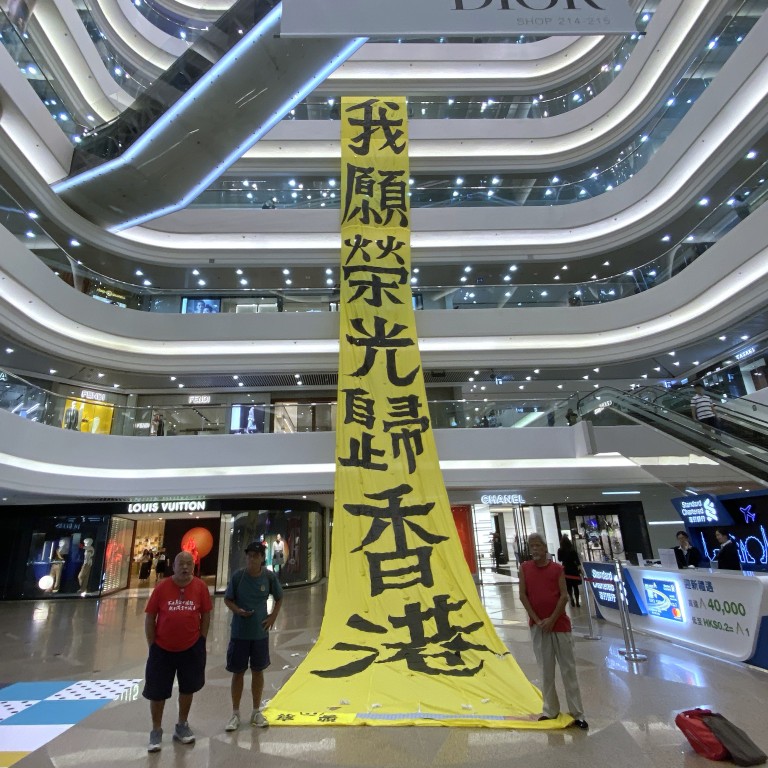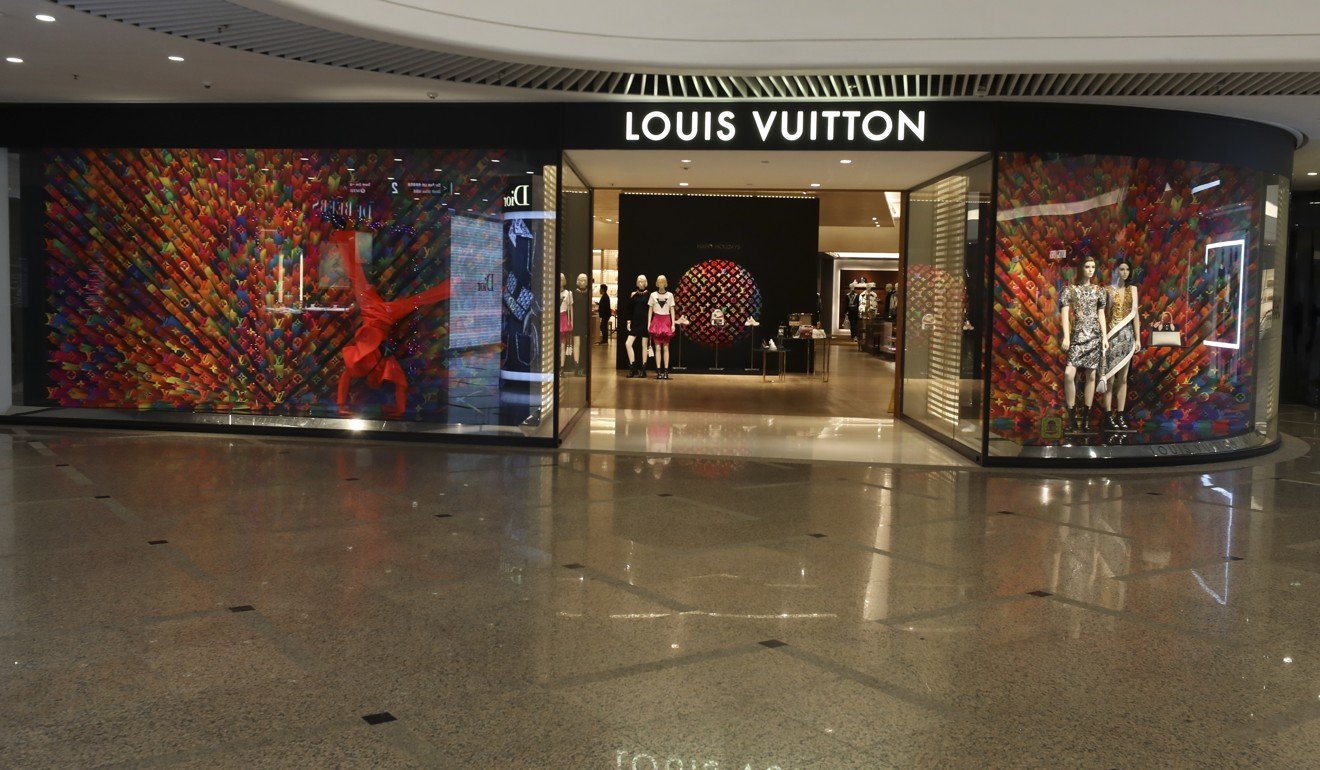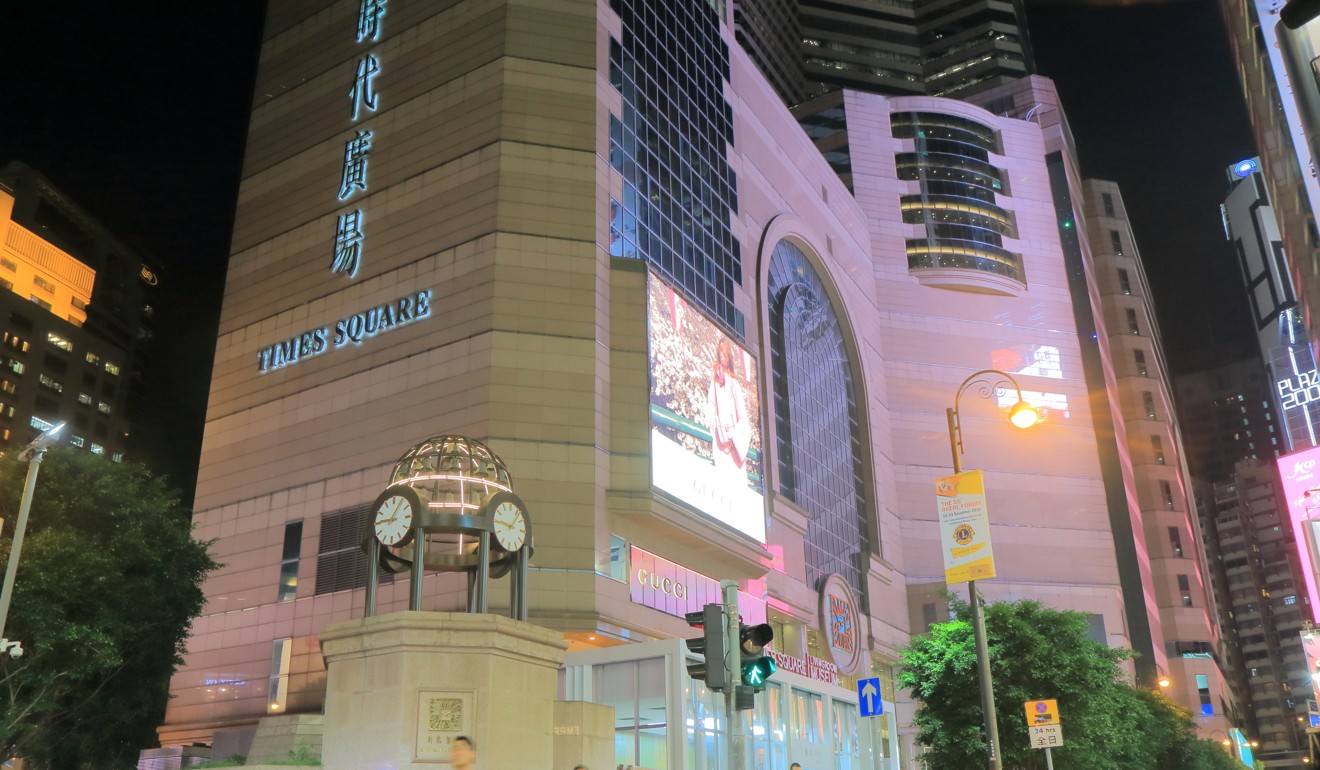
Louis Vuitton plans to close Hong Kong luxury store hit by protests; shopping mall apparently refused a rent cut
- Leading global brand’s pull-out from Times Square mall in Causeway Bay shopping district would be first luxury store closure in reaction to Hong Kong protests
- Violent protests have caused sharp drop in visitors from China, main customers of luxury stores; Louis Vuitton parent LVMH has moved some sales staff to China
Louis Vuitton, the world’s top luxury brand, is the first label to respond to the impact of the anti-government protests that have gripped Hong Kong for the past seven months by closing one of its stores in the city.
According to sources familiar with the matter, the brand, which is owned by luxury group LVMH, plans to shut its store in the Times Square mall in the shopping district of Causeway Bay, after the mall’s owner, Wharf Real Estate Investment Corporation (Wharf Reic), refused a request to lower the rent on its prime second-floor space.
Louis Vuitton has eight stores in Hong Kong, one of them in the nearby Lee Gardens mall, just a four-minute walk from Times Square. It has previously announced plans to open a ninth store at Hong Kong International Airport in 2021.
The French label’s large retail footprint in the city, which is similar to that of other luxury brands, made sense in the past when Hong Kong attracted large numbers of shoppers from mainland China, who travelled to the city to take advantage of lower prices for luxury goods. (Hong Kong is a free port and does not impose customs tariffs on imported goods.)

Protests continue to hammer Hong Kong retail sector as sales slump 23.6 per cent

The Post has also learned that, to cope with the poor performance in its overextended Hong Kong retail network, LVMH has temporarily reassigned some sales staff to stores in mainland China, as many Chinese shoppers who used to come to Hong Kong for shopping sprees are now buying luxury goods back home.
This “repatriation” of luxury spending, however, precedes the protests and reflects a diminishing price gap between Hong Kong and mainland China for luxury products.
Luxury sales in Hong Kong are driven mainly by international travellers, and visitors from China account for up to 70 per cent of purchases in the luxury sector.
Will Hong Kong become city of ‘ghost malls’?
Louis Vuitton pays an estimated HK$5 million in monthly rent for its 10,000 sq ft store in Times Square, according to industry consultants. Luxury brands pay similar rents for stores in prime locations elsewhere in the city.
Wharf Reic’s apparent rejection of a request from Louis Vuitton to lower its rent contrasts with the attitude of other Hong Kong-based developers such as Swire Properties, owner of the Pacific Place luxury mall in Admiralty, and Hongkong Land, owner of the Landmark luxury mall in Central. They have come up with a series of measures, including rent concessions, to help struggling retail tenants cope with the current crisis.

Losing an anchor tenant like Louis Vuitton would deal a significant blow to a mall like Times Square, which also houses boutiques of other major LVMH brands such as Dior, Fendi, Celine and Givenchy – international names that tend to attract high-end shoppers and generate the most foot traffic.
As a leader in the luxury sector, Louis Vuitton sets trends not only when it comes to fashion but also retail and business strategies. It is too early to say whether the decision by the largest luxury brand in the world to close a prime Hong Kong store will have a domino effect, triggering more prominent store closures in the city’s luxury retail sector in 2020.
Hong Kong luxury retailers seek rent relief as protests leave malls deserted
The Post has reached out to representatives from Louis Vuitton and Wharf Reic but they have declined to comment on the matter.

